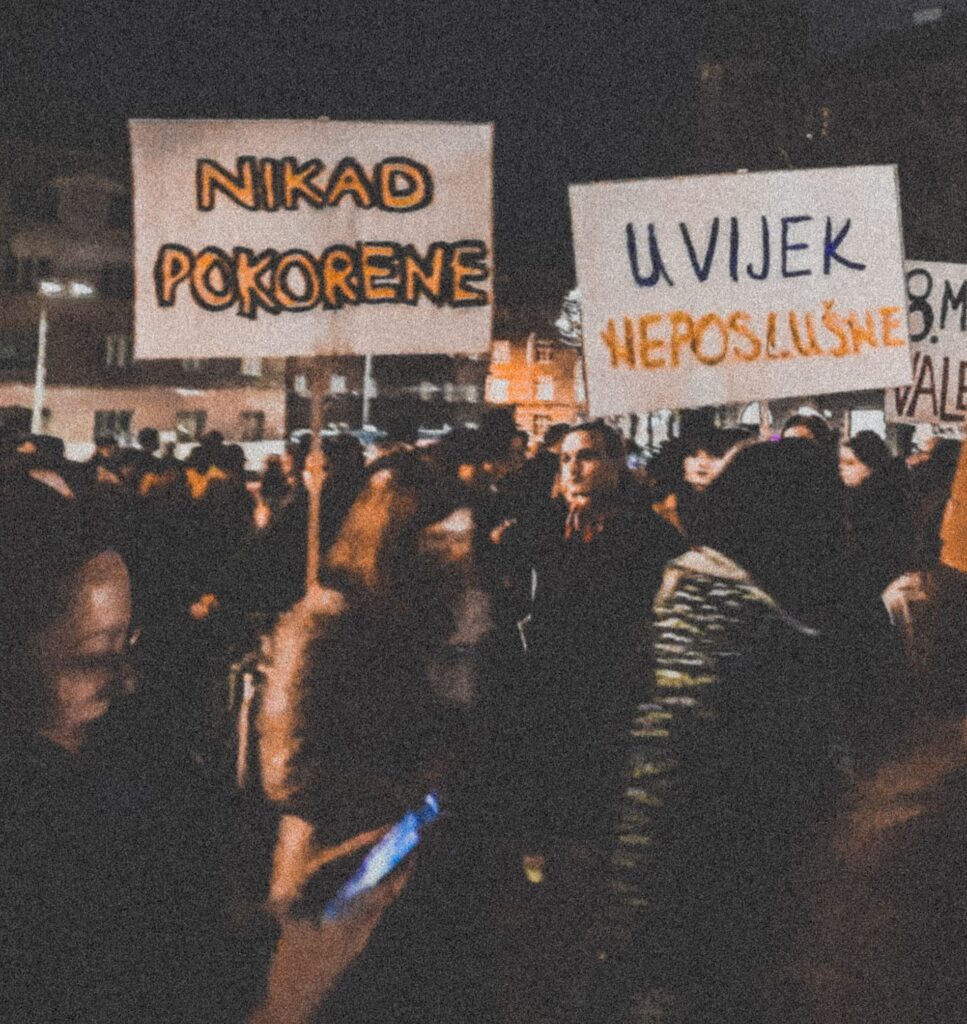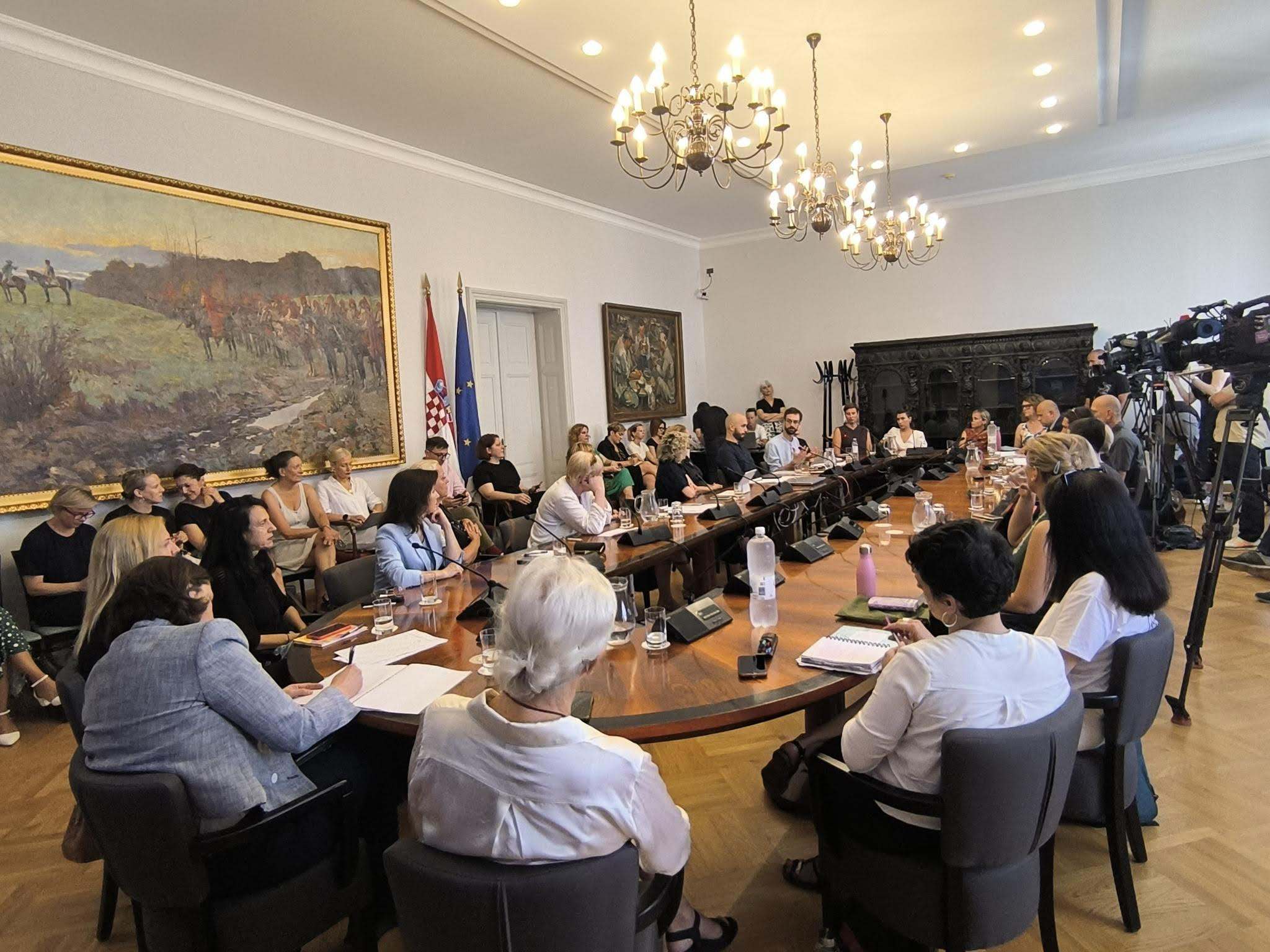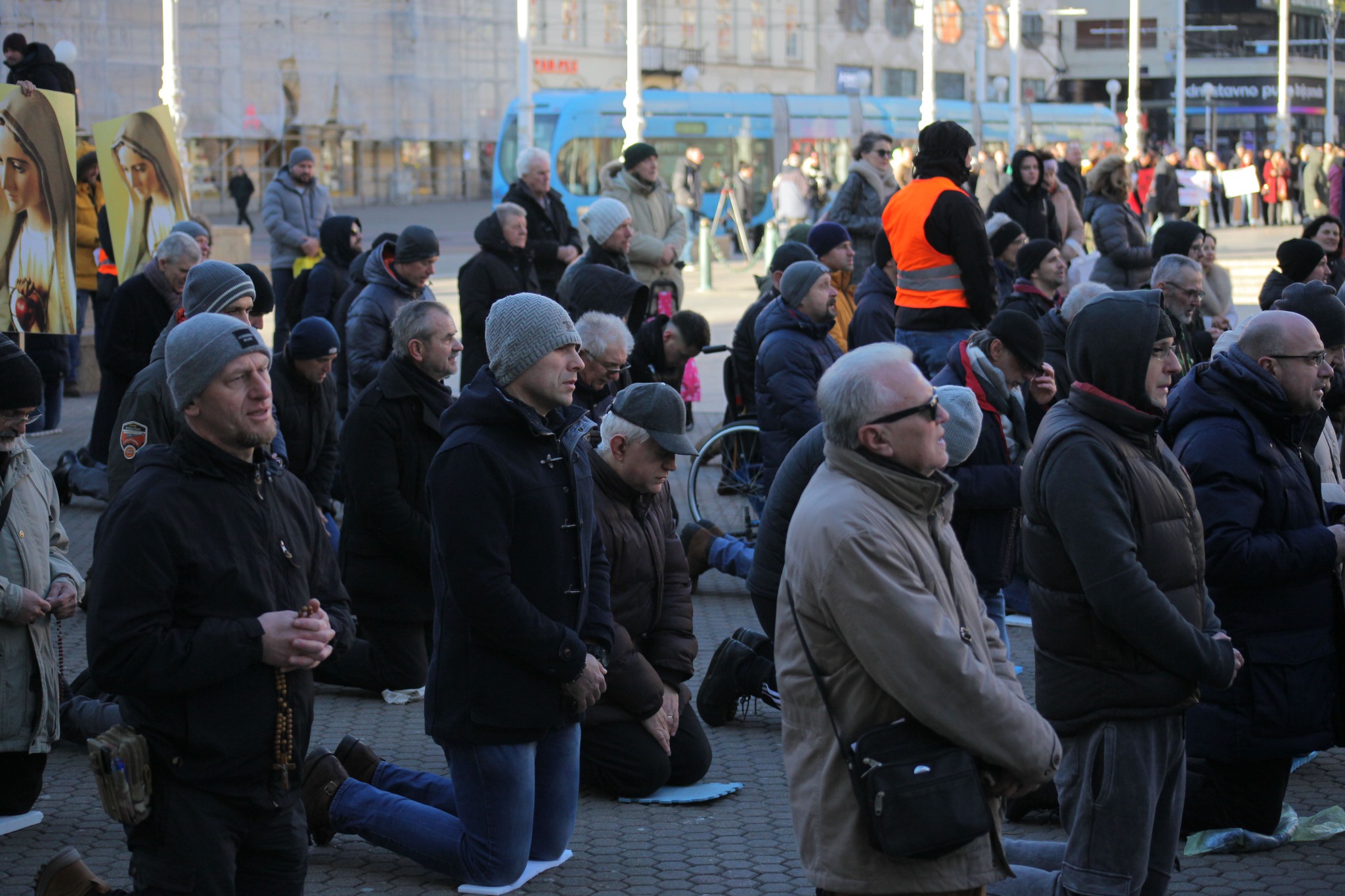
Author: Ivana Vranješ
Croatia still has a high rate of femicide concerning the number of inhabitants. However, in recent years, the connection between patriarchy and anti-gender movements with violence against women and femicide has been obvious. Višnja Ljubičić, the ombudsman for gender equality, said that in Croatia we are witnessing anti-gender movements that stand for the leading social role of men, according to whom they are natural leaders, while the role of women is at the level of mother, housewife, caregiver, educator. She warned that anti-gender movements in their formations use religious teachings and thus give legitimacy to the values that they want to change social consciousness following ideas that lead to the re-rationalization of society.
“At the same time, the demands of every modern society are ignored, which implies an equal role for women in the labor market, in the public space, in political activity, economic decision-making. Precisely such neoconservative, traditional – patriarchal patterns are in a way the trigger, that is, the root of gender-based violence that is found in unequal power relations,” said Ljubičić. She also mentioned that according to the analysis of the MUP, the main trigger for femicide is a woman’s decision to leave a marriage union in which the man is the supreme authority.

Sanja Bezbradica-Jelavić, lawyer of the Autonomous Women’s House, pointed out that petitioners in Croatian squares every first Saturday of the month, and those in front of hospitals, attack the basic human rights, fundamental freedoms, and integrity of women: “In fact, these are new forms of hate speech against women that are camouflaged in prayer. The proclamations of today’s warriors, knights, and spiritual leaders have their roots in the ancient past when women were subjugated as slaves. The connection between the examples in the ancient past and the examples of modern Croatia is undeniable,” said Bezbradica – Jelavić.
She believes that prayers in city squares have a direct, supporting influence on unacceptable violent behavior patterns of men towards women because advocating for chastity is advocating for meekness, humility, and patience, and not for equality guaranteed by the Constitution. She stressed that advocating for respect for the spiritual authority of men is simultaneously taking away the autonomy of spirituality. Bezbradica–Jelavić concluded that this is discrimination against women who are not at a lower level of development and that they should have someone’s authority, especially a man.
Given that this is an abuse of the right to freedom of assembly, the message is clear that in democratic societies the gathering of supplicants in the squares should not be allowed. Sanja Sarnavka from the Solidarna Foundation said that anti-gender movements use the concept of human rights protection in a completely twisted way, given that the radical representatives of the majority declare themselves to be an endangered minority. She emphasized that groups like the “Klečavaci” in Croatian squares manipulate faith and their vulnerability to gain power and change societal relations. She believes that supporting anti-gender movements contributes to the victimization of women
The worrying fact is that anti-gender movements, whose goals are dangerous, are well-networked globally, and their financing is non-transparent.
“The same initiatives are seen in Europe, South America, the USA, in Africa. The same narrative discourse is used everywhere. For example, we are not for banning abortion, we are for life, we are not for the submissiveness of women, we are for the spiritual authority of men, that affirmative tone is used,” warned Blažević.
Blažević also pointed to a major irregularity in the financing of the Croatian Vigilara Foundation. Namely, there are discrepancies in the financial statements related to income and inflows. For example, in 2022, an income of HRK 4.9 million was recorded, and HRK 19 million was credited, from 2019, HRK 5.7 million was recorded, while HRK 16 million was credited: “Only at the level of the last five years, it’s HRK 56 million, that is, EUR 7.5 million that came to one organization, we don’t know where it came from, we don’t know where it is, what it was spent on, or how it was recorded,” Blažević pointed out.

Sociologist Ivan Tranfić said that anti-gender movements are often linked to politics and certain political parties. In this way, the new generation of radical right-wing ultraconservative politicians is politically socialized. He mentioned that the state somehow recognized anti-gender movements as important stakeholders in society because their demands take over the human rights discourse, which enables them to have access to various committees and to be financed from state and local budgets. He also referred to the influence of prayer communities and Catholic camps on young people: “I think that this is one potential in the future for the radicalization of new generations because they usually deal with attacks on women’s reproductive rights and abortion,” said Tranfić.
He explained that anti-gender movements refuse to accept that the family can be a scene of violence, and want to protect marriage and the family at all costs. They do not recognize something that could be called gender-based violence, that is, they believe that violence is the result of social deviations such as addiction, alcoholism, or mental disorders: “At the same time, it is ignored that mental disorders, addictions in men who are violent very often result from extremely patriarchal upbringing, where boys are taught to suppress emotions, that aggressiveness is something that is a positive model of masculinity, something normal for men”, Tranfić points out.
MP Mozemo, Sandra Benčić, said that anti-gender movements want to change the basis of the social contract, which is equality, and they want to change the source of regulatory power in society.
“They are a minority and a radical group that may be connected to some religious community, that wants to manipulate religious feelings, but we must not identify with the vast majority of believers in the Republic of Croatia. In the fundamental demand, there is no difference between such radical groups and radical Islam The methods of action are different, but the demand is the same, which is to change the social contract and the source of regulatory power in society,” Benčić pointed out.
Darijo Jurišić, ombudsman for persons with disabilities, pointed out the problem of violence against women with disabilities and referred to the deratification of the Istanbul Convention. He emphasized that more than 288 thousand women with disabilities live in Croatia and they make up almost 44% of the total number of people with disabilities, which is more than 650 thousand. However, there is very little data on cases of violence against women with disabilities.
“Apart from the fact that they are often subjected to multiple discrimination, they very rarely decide to report violence, because they depend on the perpetrators of such crimes. A large number of women with disabilities are not aware that certain treatment towards them is something that is illegal, and socially unacceptable. It is precisely because of them that it is important to use all available tools related to the suppression of violence, and one of these tools is the Istanbul Convention,” Jurišić pointed out. He believes that any form of deratification of the Convention is frivolous and introduces legal uncertainty.